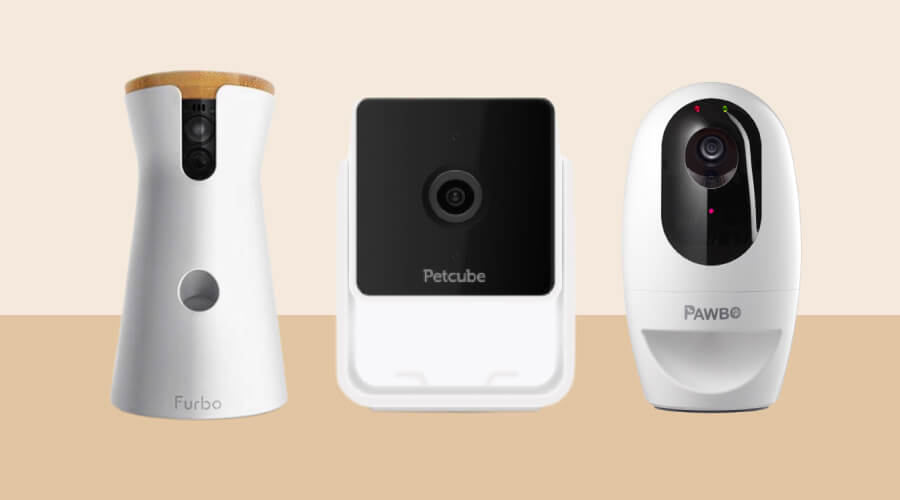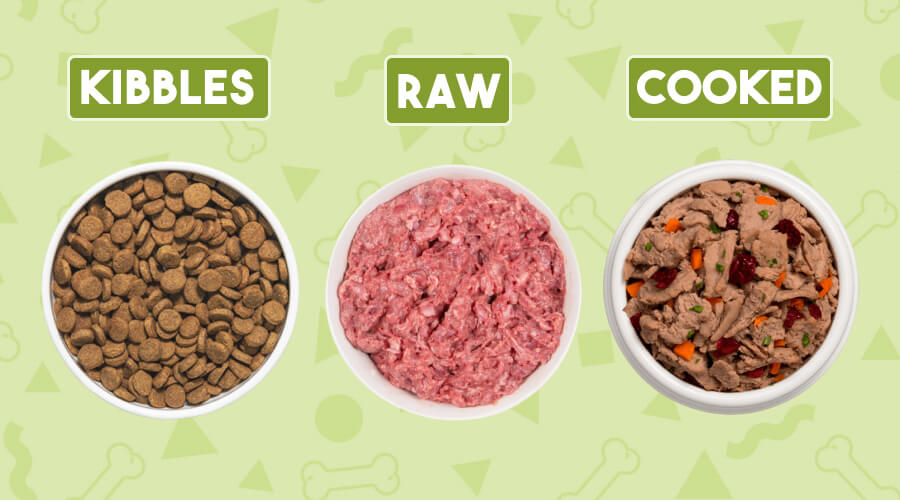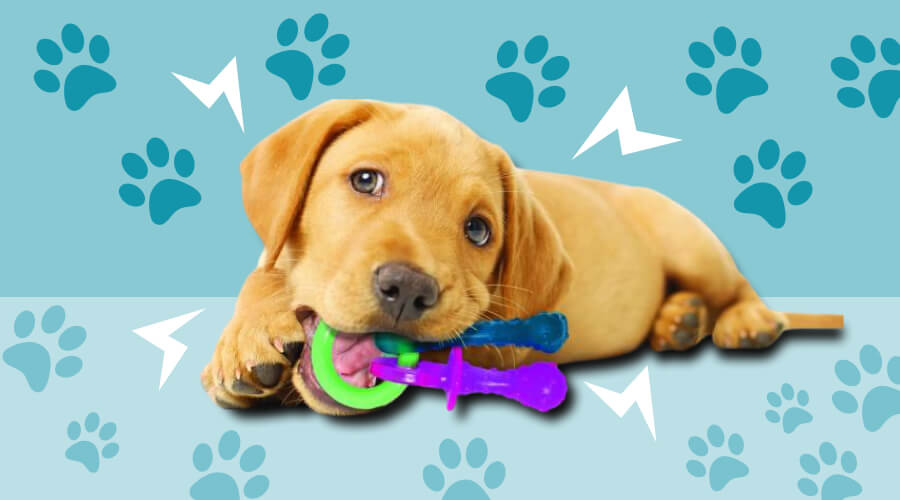Just like children, there are plenty of things new puppies need to learn in order to develop into confident and well-behaved dogs.
While most puppy-owners know and understand the benefits of things like puppy classes and dog training to learn basic commands and nice leash manners, many make the mistake of not continuing puppy training outside the classroom.
There’s a lot that falls under the umbrella of puppy socialisation, and it’s not just about meet and greets with other puppies, dogs and people. In fact, it’s so much more than that.
This is our guide for new dog owners on how to confidently socialise your puppy in order to raise a happy, confident and well-mannered dog.
What is puppy socialisation?
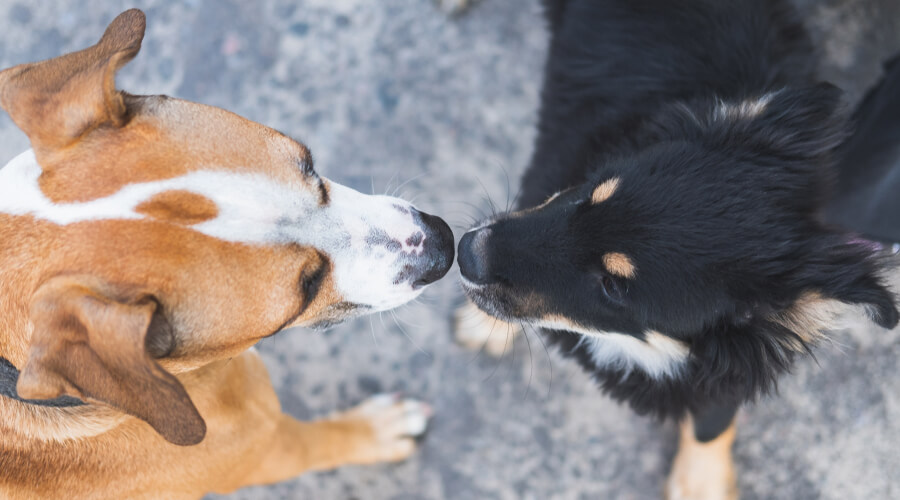
Puppy socialisation encompasses every experience your puppy has from the moment you pick them from the breeder, up until about 16 weeks of age (4 months old). It’s all about positive experiences.
Puppies go through a critical socialisation period from 6 to 16 weeks of age that is the foundation for their social behaviour for the rest of their lives. Like kids, during this period their brains are like tiny sponges – they soak up everything they experience and it’s a big part of what shapes their temperament and personality.
Puppy socialisation examples include how to calmly and safely interact with other dogs, how to act with humans, being calm in a busy cafe, in a park, socialising puppies to the sound of a vacuum or fireworks, seeing and hearing cars, trucks and planes…
Basically, during the puppy socialisation period, you want your dog to positively experience everything and anything they possibly can to avoid any fear around this (like fear of garbage bin truck – it’s a thing!) down the line.
Where to begin with puppy socialisation
Puppy socialisation can begin from the moment you bring your puppy home. Even the first car ride is an example of socialising your puppy, so you want to make it as positive an experience as possible with lots of love, praise, treats and comforting items.
You can start socialisation with puppy training classes if you want, but you can start straight away. You don’t need to wait for puppy school or someone to guide you through it. You can start yourself!
Many people miss out on socialising their puppy correctly because they assume they need to wait until all their vaccinations to take them outside the house. The thing is, if you wait until your puppy is fully vaccinated, they’ll be 16 weeks or older and you’ll have missed the crucial socialisation window.
While it’s important you don’t let your unvaccinated puppy socialise with unknown dogs or dogs who aren’t vaccinated or let them sniff and roam around the dog park (and risk catching parvovirus), many vets will say that letting your pup socialise with vaccinated dogs, as well as walk around on the pavement, is OK. Dog trainers are typically more vocal about the benefits of socialising and suggest it’s more harmful to not socialise your dog than to risk your puppy coming into contact with something harmful on the ground or via another dog.
But the socialisation process can be as simple as you holding your puppy in your arms as you go buy a coffee, letting other people approach and say hello in a gentle and calm manner. You can put your puppy in a stroller and walk them around the neighbourhood. It’s introducing them to loud noises by walking past a construction site or near the airport.
It could be taking your puppy to Bunnings to let them see new sights, smell and hear everything going on in a new environment. The beach is also generally a safe place to take your puppy before it’s been fully vaccinated, and this is another great socialising activity.
New materials under paws is another important one, which you can facilitate at home by letting the puppy walk on sand, on water, on the carpet and you can even buy material like a tarpaulin to get your puppy used to that new sensation too.
Another easy way to start puppy socialisation is by organising a playdate with another puppy or friendly older dog who is vaccinated. This is a positive way to introduce your pup to other animals, while staying safe.
What happens if you don’t socialise a puppy
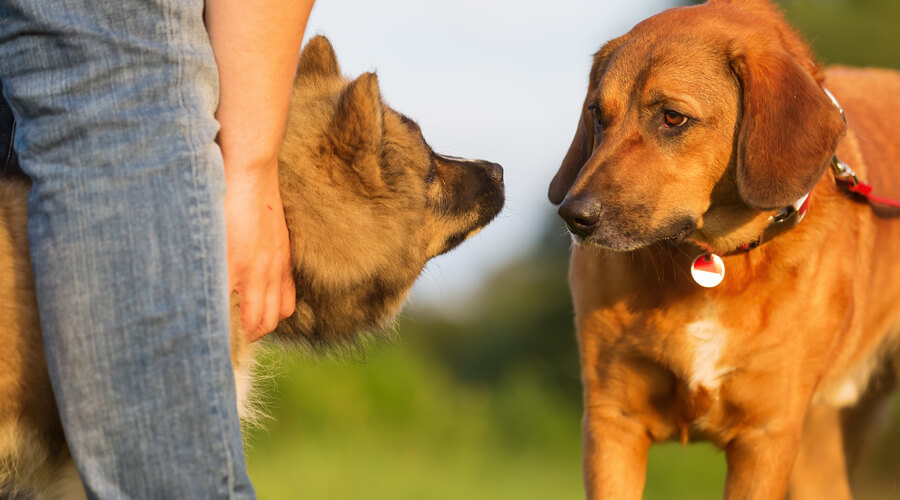
It’s vital your puppy interacts with lots of new people and types of body language, animals, sights, smells and sounds so they can learn the right way to behave in public and so they don’t develop chronic fears as they get older.
If your puppy isn’t correctly socialised, it can develop phobias and behavioural problems that are very challenging to fix. Unsocialised puppies can be aggressive when they’re adult dogs.
Not socialising your puppy throughout the crucial socialisation period means they won’t have the skills they need to interact with other dogs safely, which could lead to them being fearful around other people or everyday things outside of the safety of your home, and so on.
Puppy socialisation is all about encouraging safe curiosity and positively reinforcing new experiences. For example, if your puppy has a fear response to a new person or animal, picking it up or quickly removing it from the situation is more harmful than letting the puppy figure it out for themselves, with you as a guiding hand positively reinforcing with food, your words or pats.
Puppy Socialisation Checklist
Your puppy needs to learn how to safely and positively interact with lots of different people, pets and situations in life. Here are some common places, experiences and people to get your puppy familiar with during the puppy socialisation window.
People & animals
- Babies and children
- Adult women and men
- Veterinarians
- People with hats and glasses
- People in wheelchairs or on crutches
- People riding bikes/people on scooters
- Dogs of all sizes and ages, as well as other puppies
- Other types of animals including cats, rabbits, guinea pigs and so on
Places
- Cafes
- Parks
- Beaches
- The vet
- Pet stores/Bunnings
- Other people’s homes
- Construction sites
- Bushland
- Different surfaces like grass, wooden floors, slippery floors, stairs, mud, sand etc.
Experiences
- Riding in the car
- Sleeping in a crate / crate training
- Being groomed by you/the groomer
- Handling their teeth, mouth, paws, tail
- Having a bath
- Having the leash on
- Swimming
- Wearing dog clothes
Sounds
- Vacuum cleaners
- Hairdryer
- Traffic
- Thunderstorms
- Microwave
- Music
- Fireworks
- Fire alarm/smoke alarm
Pro tip: sometimes you won’t be in a situation where you can expose your puppy to certain sounds (like fireworks). In this instance, you can find a YouTube clip of the sound and expose your puppy to it while feeding them treats, praising, patting etc so they build up a positive association.
A good idea is to play a new sound on repeat every mealtime so your dog associates the sound with something positive (like being fed!). You can start with the sound on low, and gradually increase it as your puppy becomes comfortable.
Socialising a Puppy – Positive Reinforcement is Key
Just remember that when socialising your pooch, positive reinforcement is key. Introduce them to a wide variety of people and situations and experiences, but always in a positive way. Every time they experience something new and remain calm and happy, praise them! You’ll know the best way your puppy likes to get praised whether it’s with words, food or touch.

